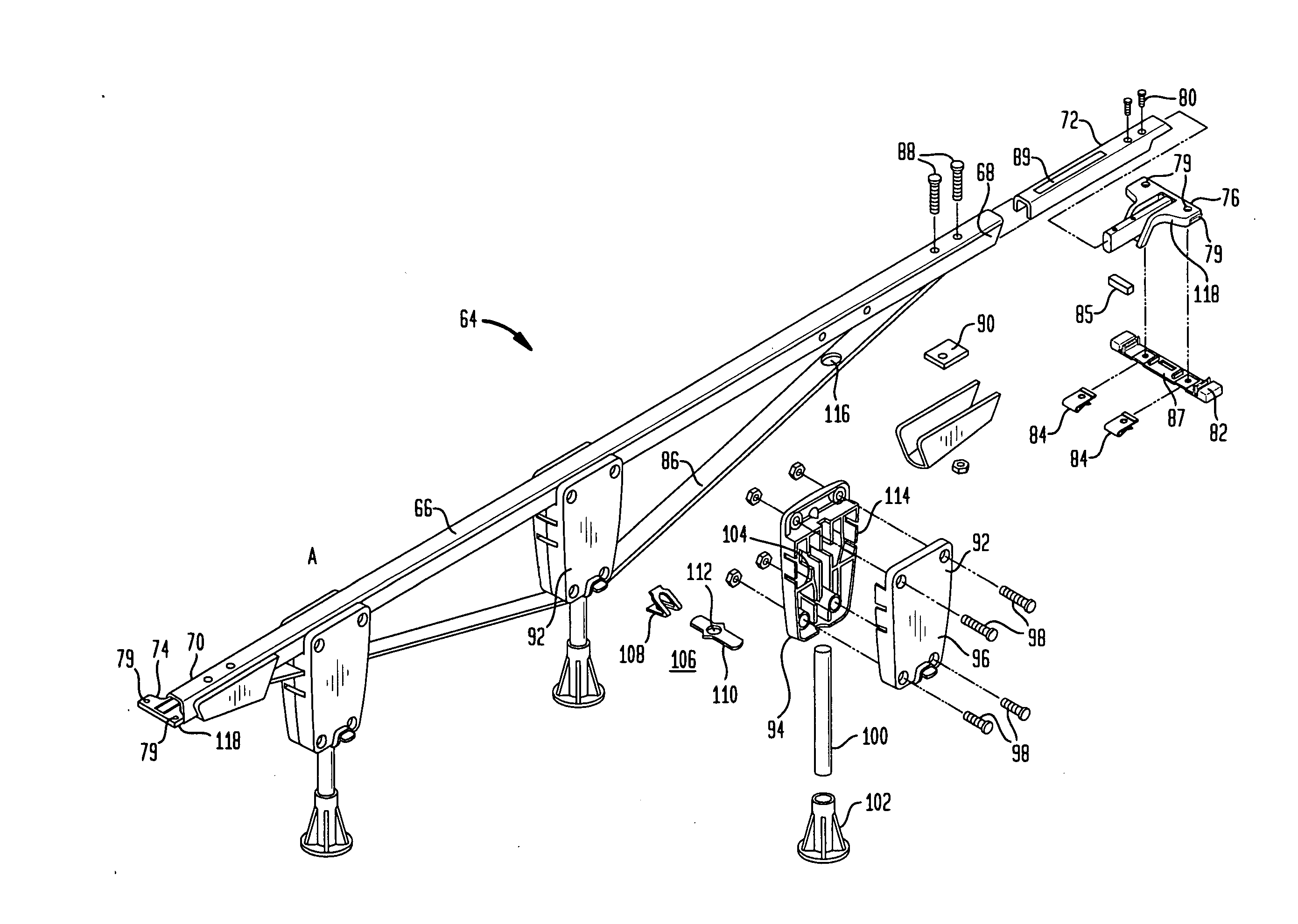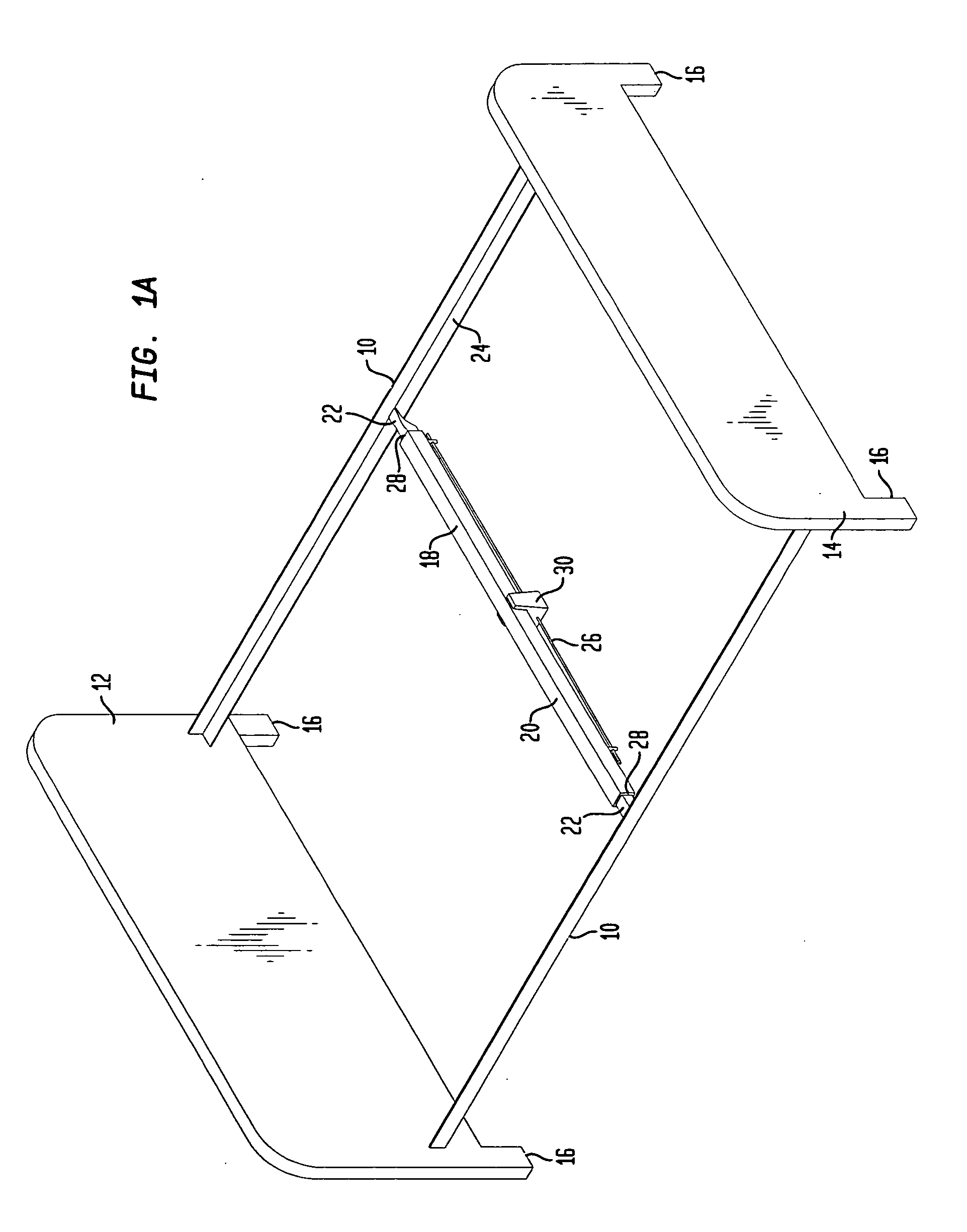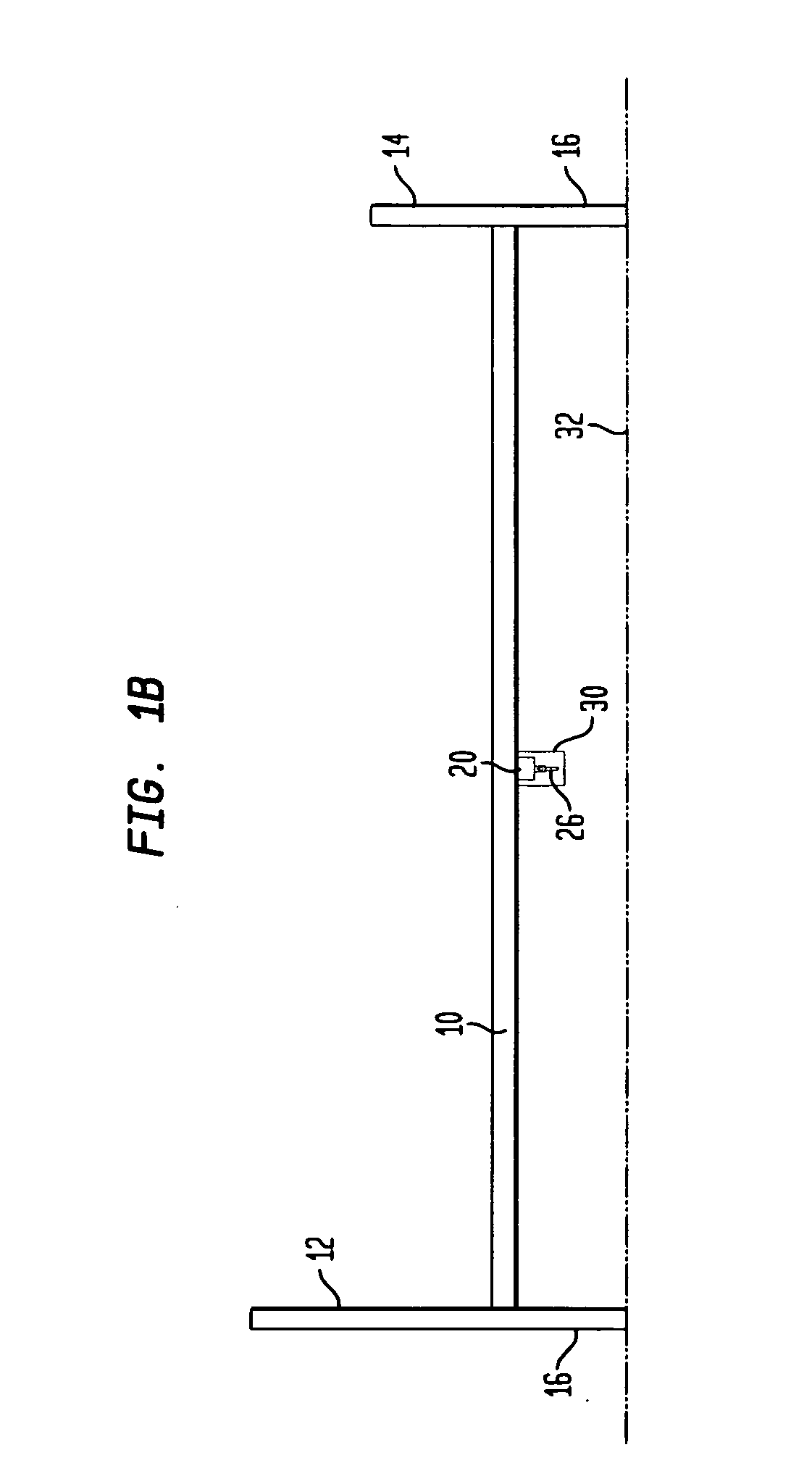Support member and system for affixation to bed rails or bed frame
a technology for supporting members and bed frames, which is applied in the direction of sofas, adjustable height tables, bedstands, etc., can solve the problems of cumbersome installation and maintenance, increased cross member costs, and added to the overall weight of the structure, so as to prolong the life of the bed frame itself, reduce the effect of rigidity
- Summary
- Abstract
- Description
- Claims
- Application Information
AI Technical Summary
Benefits of technology
Problems solved by technology
Method used
Image
Examples
Embodiment Construction
[0074] Referring now to FIG. 1A, there is shown a perspective view of a completed bed assembly and which includes conventional components such as side rails 10 that are positioned parallel to each other and spaced apart a predetermined distance depending upon the type of box spring and mattress to be used with the bed assembly. At one end of the side rails 10, there is a headboard 12 generally affixed in normal means to the side rails 10 and at the opposite ends of the side rails 10, there is a footboard 14 that is, again, affixed to the side rails 10 in any conventional manner.
[0075] As will be noted, the typical bed assembly may or may not include both a headboard and a footboard, and those components are both shown for convenience in illustrating the present invention. It should be noted, however, that the headboard 12 and the footboard 14 both are provided with legs 16 and which support the entire bed assembly on the surface of a floor. The particular length of the legs 16 is n...
PUM
 Login to View More
Login to View More Abstract
Description
Claims
Application Information
 Login to View More
Login to View More - R&D
- Intellectual Property
- Life Sciences
- Materials
- Tech Scout
- Unparalleled Data Quality
- Higher Quality Content
- 60% Fewer Hallucinations
Browse by: Latest US Patents, China's latest patents, Technical Efficacy Thesaurus, Application Domain, Technology Topic, Popular Technical Reports.
© 2025 PatSnap. All rights reserved.Legal|Privacy policy|Modern Slavery Act Transparency Statement|Sitemap|About US| Contact US: help@patsnap.com



